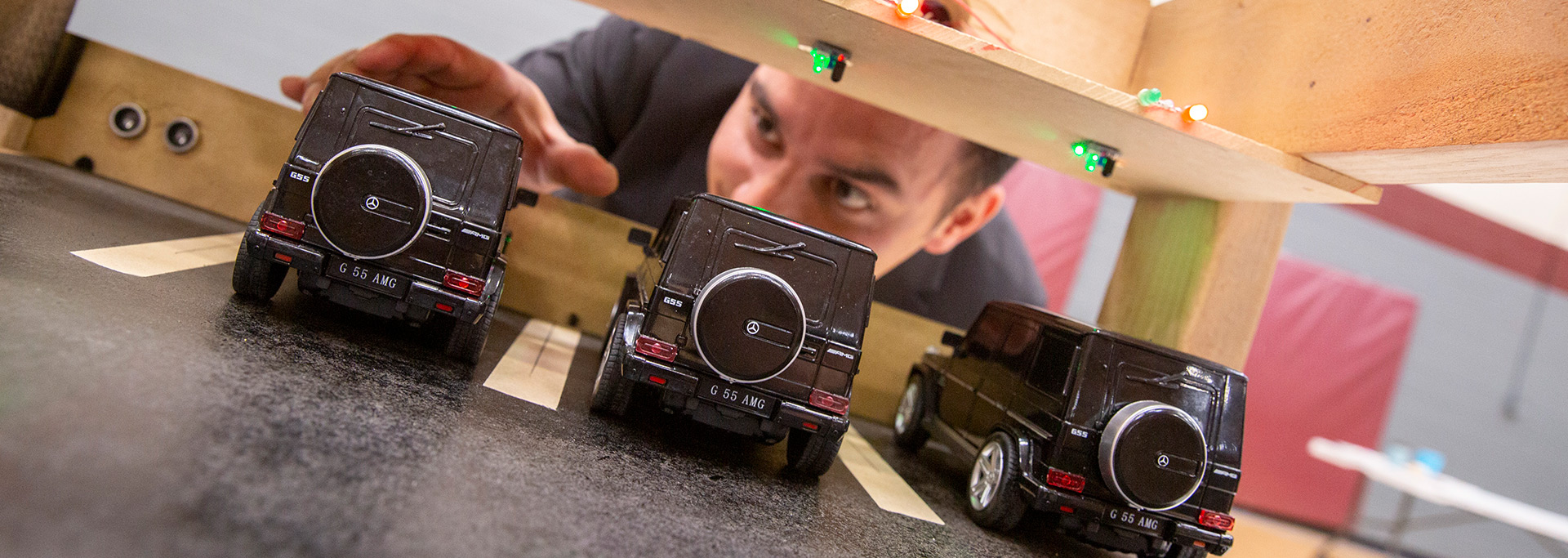
Learning by example
Fulton Schools graduating seniors present their work at multiple capstone symposia and showcase events at the end of each semester.
Undergraduate and graduate students in the Fulton Schools of Engineering devote a large part of their final year to completing a capstone project, which demonstrates the insights and skills they have developed at ASU.
For many students, capstone work involves direct contact with industry professionals who sponsor a project and collaborate with student teams as they tackle the challenges of solving their assigned problem.
With the guidance of industry and faculty mentors, the capstone environment enables a think tank for students to conceptualize, develop, produce and refine new methodologies, inventions and ideas.
Working with a company sponsor allows you to work with different people who have valuable professional experience and have mastered a skill
Samuel Dicaro'22 BS in computer systems engineering
Meet the students who are shaping our future.
Fulton Schools graduating seniors present their work at multiple capstone symposia and showcase events at the end of each semester.
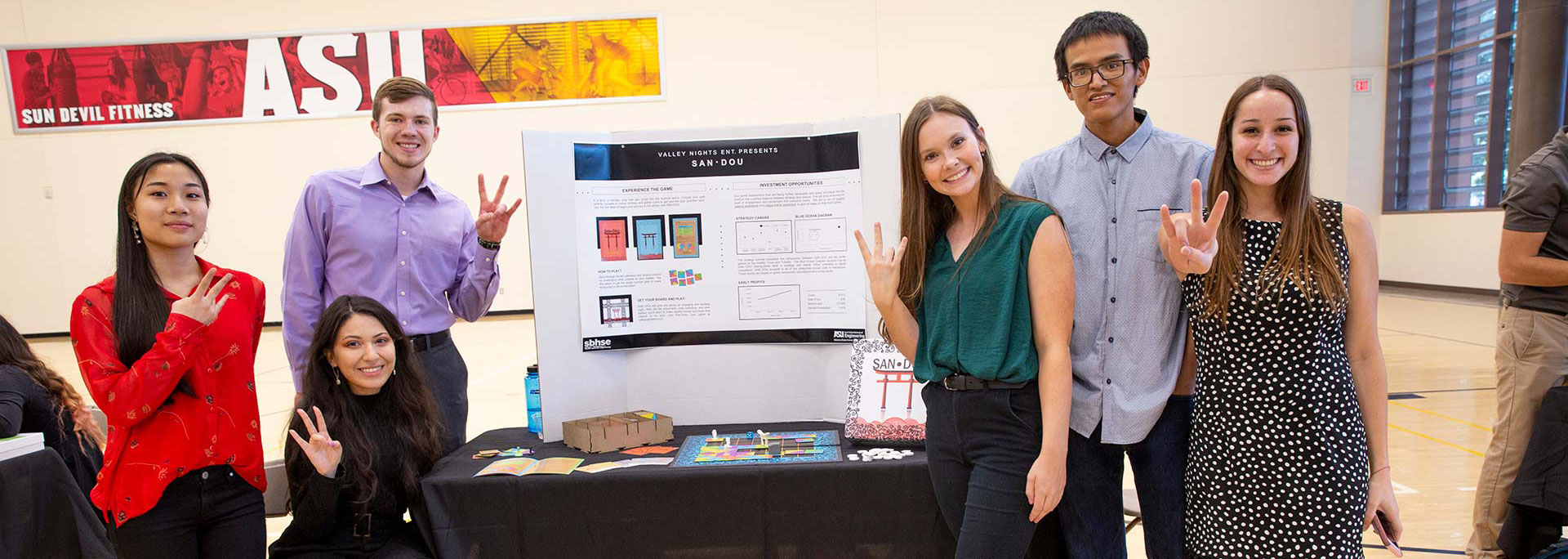
Biomedical Engineering Symposium
Biomedical engineering students proudly display health care technology innovations poised to address the ever pressing and challenging unmet clinical needs that persist throughout the world.
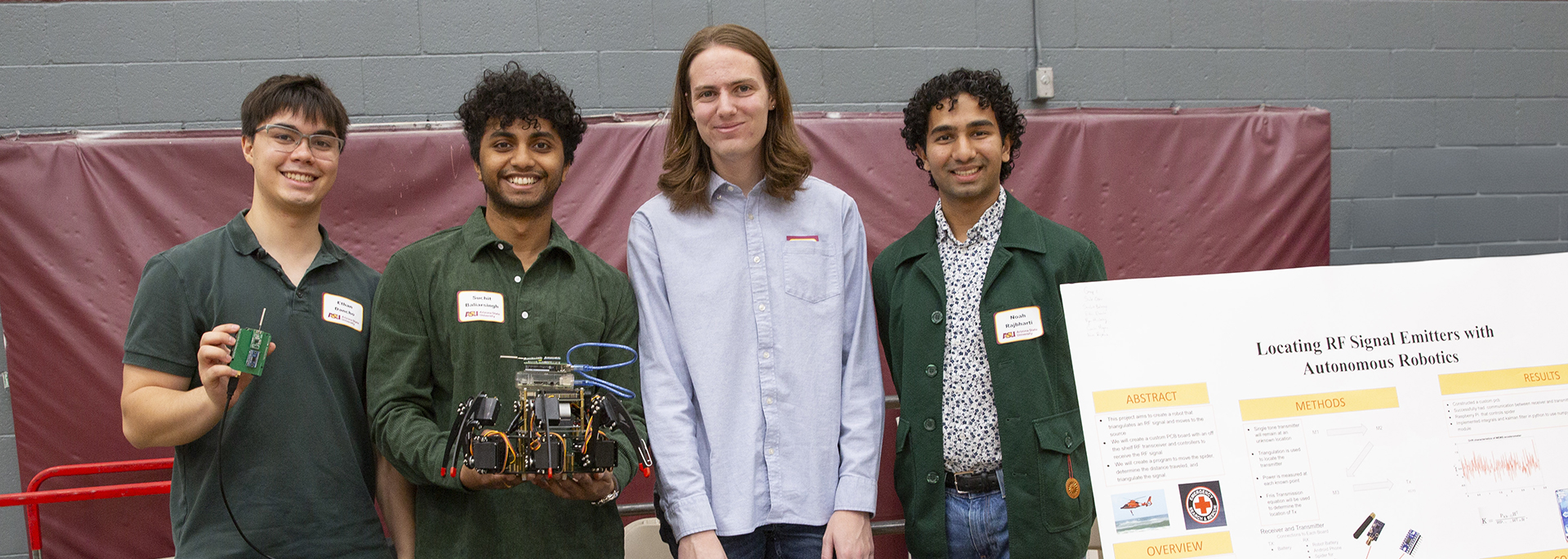
ECEE Senior Design Capstone Demo Day
The ECEE Senior Design Capstone Demo Day features graduating seniors from the School of Electrical, Computer and Energy Engineering presenting their capstone projects that address real-world challenges.
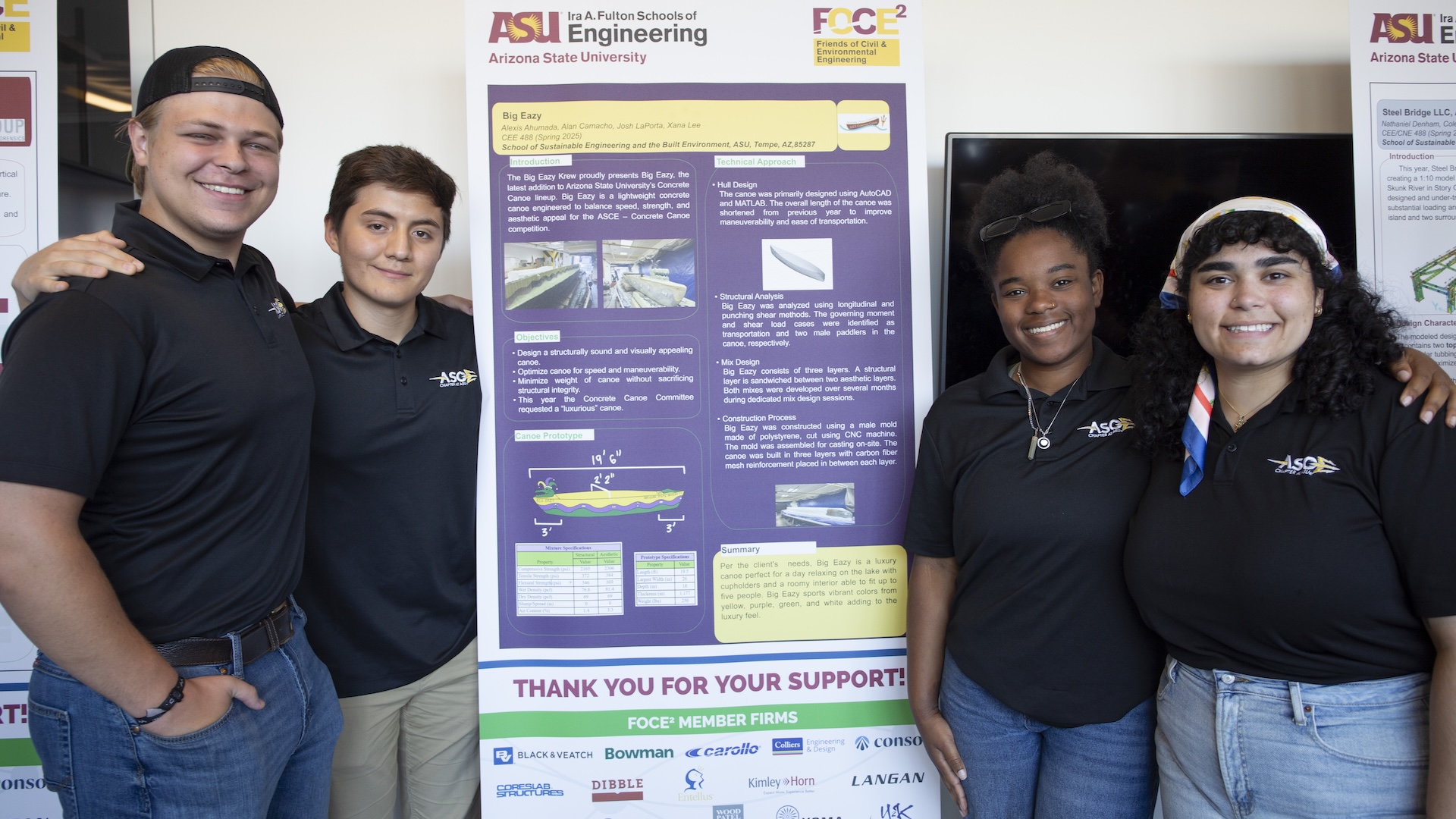
SSEBE Capstone Project Showcase
Student teams from the senior design class in civil, construction and environmental engineering will discuss their capstone design projects, present their posters and answer questions.
Spotlight on student success.
Read more about ASU Engineering students whose capstone work has refined and produced new methodologies, inventions and ideas.
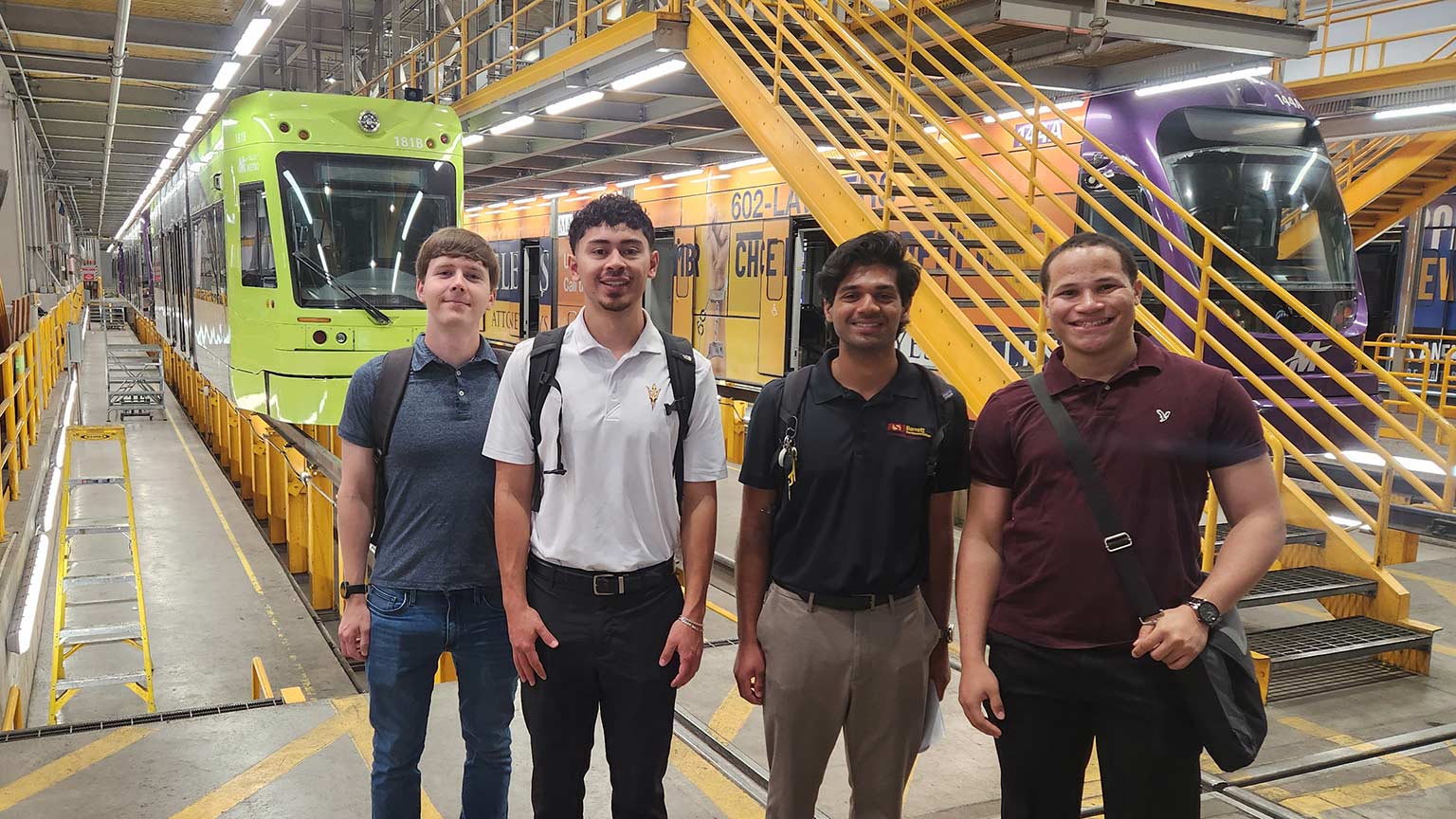
Precisely monitoring streetcars in real-time
Electrical engineering students focus capstone project on improving streetcar tracking for improved rider experience.

Balancing reproductive responsibility
ASU capstone project creates new male contraceptive and wins Venture prize in NIH DEBUT Challenge.
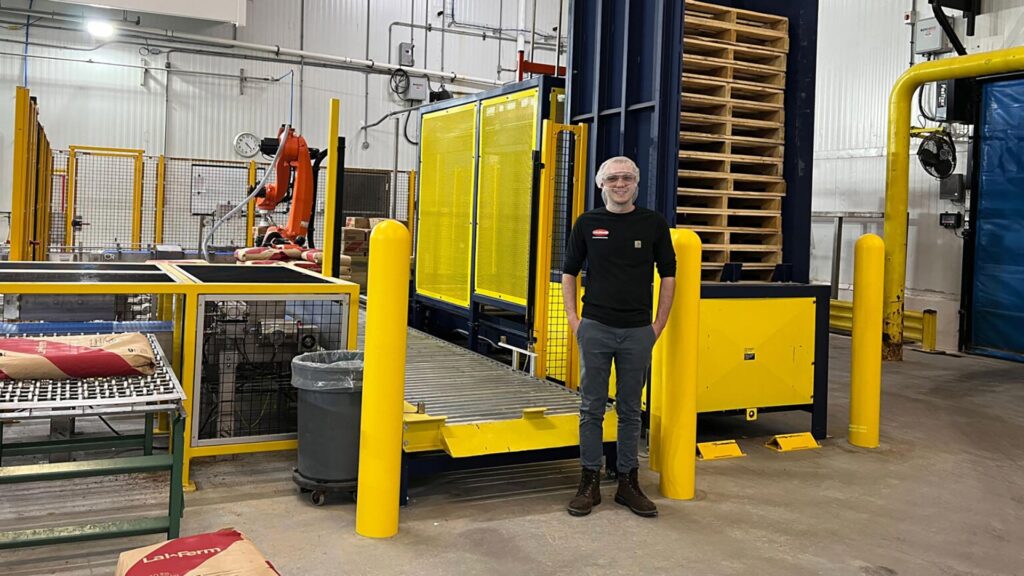
A legend in the baking: ASU alumnus finds success with capstone project
Fulton Schools grad designs a robotic solution to Lallemand Baking’s palletization challenge.
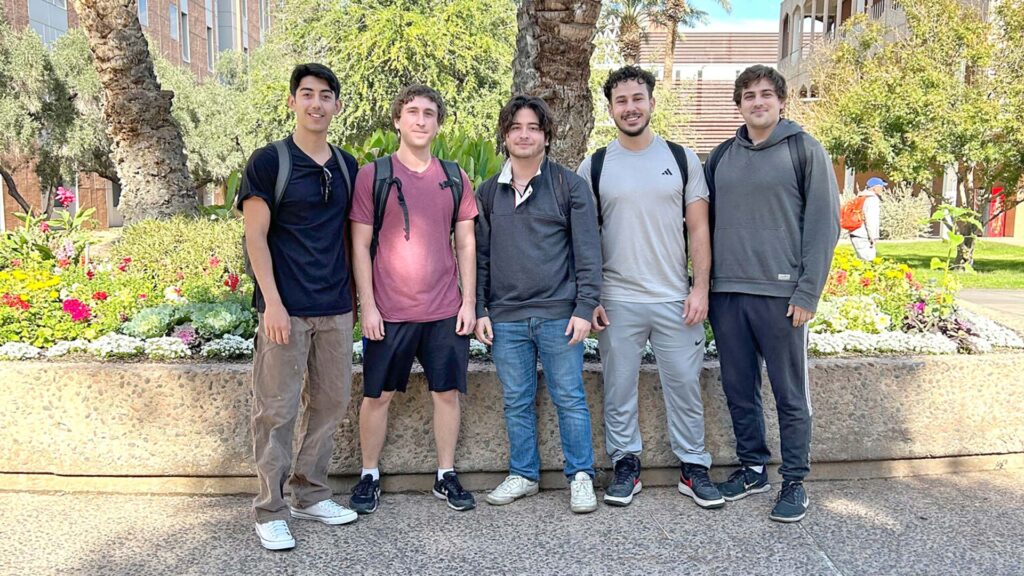
Democratizing semiconductor design
Electrical engineering doctoral student leads project to make microelectronics design accessible to all.
Research themes
Students work on projects within seven different themes that represent the Fulton Schools’ core research disciplines.
Data
In an increasingly digital world, data collection is growing at a rapid pace. Fulton Schools faculty and student researchers are devising innovative approaches and tools that will help us better process, analyze, use, manage and access data. New computational tools, algorithms and data analysis techniques, including hardware and software approaches, machine learning, data analytics, data-driven decision-making and more will help advance scientific discoveries and collaborations across multiple fields where data use and capture is ubiquitous.Education
We are engaged in advancing the ways we educate engineering students. The Fulton Schools’ research focuses on learning methods, cognitive theory and best teaching practices, as well as the integration of engineering concepts in K-12 educational programs to engage students early and educate our community about the impact engineering has on everyday life.Energy
The urgency to discover and deploy new forms of carbon-reducing energy technologies has become an indispensable part of our economic and environmental landscape. The Fulton Schools’ research in renewable and alternative energy sources is multifaceted with efforts in solar and photovoltaic energy, biotechnology, low- and high-power energy storage, power electronics, electric power systems, batteries and hydrogen fuel cells.Health
The Fulton Schools’ efforts in health innovation range from understanding the causes behind Alzheimer’s disease and improving methods for predicting epileptic seizures to developing advanced biosensors, bioassays and lab-on-a-chip devices for clinical diagnostics. Additional areas of research exist in novel biological materials, neural engineering, biomedical informatics, drug-delivery systems, health care systems analysis and modeling, health monitoring devices and human rehabilitation technologies.Security
As technology develops at a faster rate, there is a growing need to develop engineering systems to keep people and infrastructure secure, including securing cyberspace, developing secure communications, developing self-healing systems resilient to attack and identifying, monitoring and reducing threats. Fulton Schools researchers — faculty and students — are addressing issues of national defense, homeland security, border security, cyberwarfare and more, devising technology solutions as well as legal, policy and social implications.Semiconductor manufacturing
Semiconductor devices are part of our everyday lives and the demand for techniques and processes to promote them continues to grow. Fulton Schools researchers are driving innovation forward through advances in areas such as power electronics, wireless and mixed-signal circuit design, memory devices and architectures, solar energy and batteries, advanced packaging and new semiconductor materials. Expansive industry collaborations and unique facilities at ASU center Arizona as a hub for the American semiconductor revolution.Sustainability
Developing advanced biosensors, bioassays and lab-on-a-chip devices for clinical diagnostics. Additional areas of research exist in novel biological materials, neural engineering, biomedical informatics, drug-delivery systems,